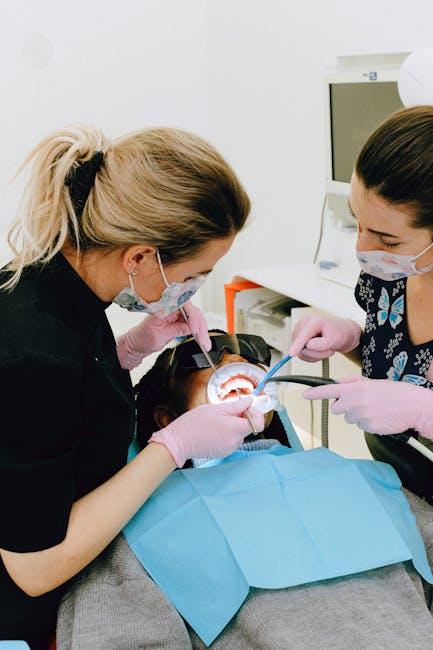
Bereavement in the Dental Workplace: How to Support Staff
Supporting dental practice staff through bereavement is essential to maintaining a compassionate and productive workplace. In this guide, Dentistry UK explores practical strategies and benefits for managing grief sensitively within dental teams.
Introduction
Bereavement can profoundly impact individuals, including dental professionals who work closely with patients and colleagues. When a member of staff experiences a loss, it can affect their mental health, job performance, and overall wellbeing. For dental practice managers and team leaders, understanding how to support staff during bereavement is crucial not only to help employees cope but also to maintain a supportive and resilient workplace.
This article delves into the challenges of bereavement in the dental workplace and offers effective ways to provide meaningful support to affected staff members.
Understanding Bereavement in the Dental Workplace
Bereavement refers to the period of grief and mourning after a loss, typically involving the death of a loved one. In a dental practice, bereavement may arise among staff, their families, or even patients. Dental professionals often build close relationships with colleagues, making workplace bereavement particularly impactful.
Common impacts of bereavement on dental staff include:
- Emotional distress, including sadness, anger, and guilt
- Difficulty concentrating or performing clinical tasks safely
- Increased absenteeism or presenteeism
- Changes in interpersonal communication and team dynamics
Why Supporting Bereaved Staff Matters in Dentistry
Providing robust support for bereaved dental staff benefits the entire practice by:
- Promoting mental health and emotional stability
- Reducing staff turnover and absenteeism
- Enhancing team morale and trust
- Maintaining high standards of patient care and safety
Practical Tips for Supporting Bereaved Staff in Dental Practices
Effective bereavement support involves a combination of empathy, communication, and policy adjustments. Here are vital steps for dentistry workplaces:
1. Establish Clear Bereavement Policies
Ensure your practice has a clear bereavement leave policy, compliant with UK employment laws. This should clarify how much time off employees can take and any additional support available.
2. Foster Open Communication
- Encourage managers to have sensitive, private conversations with grieving staff
- Offer a listening ear without pressuring employees to share more than they wish
- Communicate available support options clearly
3. Provide Flexible Working Arrangements
Allow flexibility in scheduling, reduced hours, or temporary adjustments in duties to accommodate emotional and physical wellbeing.
4. Promote Access to Professional Support
Consider connecting staff with counselling services, Employee Assistance Programmes (EAPs), or mental health professionals specialising in grief.
5. Encourage Peer Support and Team Awareness
- Inform colleagues sensitively about the bereavement, respecting privacy
- Encourage supportive gestures such as cards, flowers, or shared moments of remembrance
Benefits of Bereavement Support in Dental Teams
| Benefit | Impact on Practice |
|---|---|
| Improved Staff Morale | Creates a compassionate culture that boosts morale and loyalty |
| Reduced Absenteeism | Timely support helps staff return to work confidently and sooner |
| Maintained Patient Care | Supports staff wellbeing, ensuring quality and safety in dental treatments |
| Enhanced Team Cohesion | Shared support of grief strengthens bonds among colleagues |
Case Study: Supporting a Dental Hygienist After Bereavement
Jane, a dental hygienist at a busy UK practice, lost her father unexpectedly. Her manager offered immediate paid bereavement leave and arranged for a temporary adjustment of her patient load upon return. Jane was also connected to an EAP counselling service. The team organised a card to show support. Over time, Jane expressed gratitude for the flexible arrangements and emotional support, which helped her gradually regain focus and confidence at work.
First-Hand Experience: A Practice Manager’s Perspective
Mark Dawson, a dental practice manager in Manchester, shares:
“Bereavement is never easy, and it can affect the whole team in unpredictable ways. When one of our receptionists lost her mother, we immediately reviewed our policies and ensured she had time off without added stress. We also encouraged the team to acknowledge her loss in a respectful way, which made a real difference. Since then, we’ve introduced mental health training for all staff to better support each other during tough times.”
Additional Resources for Dental Practices
- Mind: Grief and Loss Support
- NHS: Coping with Bereavement
- Acas: Bereavement and Victim Support at Work
- British Dental Association: Mental Health Resources
Conclusion
Bereavement is a challenging reality for dental workplaces, but with thoughtful, empathetic support systems in place, practices can help staff navigate grief while preserving a healthy work environment. Implementing clear bereavement policies, fostering open communication, offering flexibility, and connecting staff with professional resources are fundamental steps to showing care and respect during difficult times.
By prioritising bereavement support, dentistry teams across the UK can enhance resilience, maintain excellent patient care, and nurture a positive workplace culture where all team members feel valued and supported.


